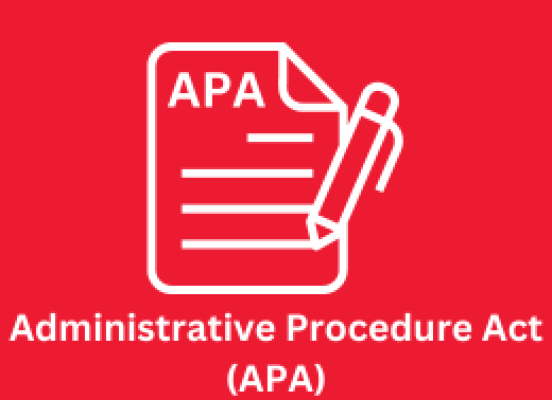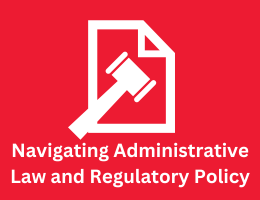
Administrative Procedure Act (APA): Procedural Framework for Administrative Agencies
- By admin --
- Thursday, 07 Mar, 2024
The Administrative Procedure Act (APA) serves as the cornerstone of administrative law in the United States, providing a comprehensive procedural framework for the operations of federal administrative agencies. Enacted in 1946, the APA outlines the procedures that agencies must follow when making rules, conducting adjudications, and engaging in other agency actions. This essay explores the key provisions of the APA, focusing on rulemaking procedures, adjudication, and judicial review.
Introduction to the Administrative Procedure Act
The APA was enacted to address concerns about the lack of uniformity, transparency, and fairness in the administrative processes of federal agencies. Prior to the APA, administrative procedures varied widely among agencies, leading to inconsistency and potential abuses of power. The APA sought to remedy these issues by establishing minimum procedural standards that agencies must adhere to when exercising their authority.
Rulemaking Procedures
One of the central components of the APA is its provisions regarding rulemaking procedures. Rulemaking is the process by which agencies promulgate regulations that have the force of law. The APA sets forth requirements for notice and comment rulemaking, ensuring that interested parties have the opportunity to participate in the rulemaking process.
Under the APA, agencies must publish a notice of proposed rulemaking in the Federal Register, providing the public with notice of the proposed rule and an opportunity to submit comments. Agencies are required to consider these comments before issuing a final rule. The APA also allows for informal rulemaking procedures in certain circumstances, such as when rules are interpretive or procedural in nature.
Adjudication
The APA also governs the adjudicatory proceedings of administrative agencies. Adjudication involves the resolution of disputes between agencies and private parties, often in the form of formal hearings or trials conducted by administrative law judges (ALJs). The APA sets forth procedural requirements for adjudicatory proceedings, including the right to a hearing, the presentation of evidence, and the issuance of a written decision.
Key provisions of the APA regarding adjudication include the requirement that parties be given notice of the proceedings and an opportunity to be heard. The APA also mandates that adjudicatory decisions be based on the evidence presented and that parties be provided with a written statement of findings and conclusions. Additionally, the APA establishes requirements for the impartiality and independence of ALJs, ensuring that adjudicatory proceedings are fair and unbiased.
Judicial Review
A critical aspect of the APA is its provisions regarding judicial review of agency actions. The APA provides a mechanism for parties aggrieved by agency actions to seek review in federal court. Judicial review under the APA is available for final agency actions, including both rulemaking and adjudicatory decisions.
The APA establishes standards of review for judicial review proceedings, including the arbitrary and capricious standard and the substantial evidence standard. Under the arbitrary and capricious standard, courts will overturn agency actions that are deemed to be arbitrary, capricious, an abuse of discretion, or otherwise not in accordance with law. The substantial evidence standard requires courts to uphold agency actions that are supported by substantial evidence in the administrative record.
In addition to substantive standards of review, the APA also imposes procedural requirements for judicial review proceedings, such as the exhaustion of administrative remedies and the filing of timely appeals. Parties seeking judicial review must typically exhaust all available administrative remedies before seeking relief in federal court.
Conclusion
The Administrative Procedure Act plays a foundational role in the field of administrative law, establishing procedural requirements that govern the operations of federal administrative agencies. By setting forth procedures for rulemaking, adjudication, and judicial review, the APA promotes transparency, fairness, and accountability in the administrative process. Understanding the key provisions of the APA is essential for navigating the complexities of administrative law and ensuring that agencies operate within the bounds of the law.





